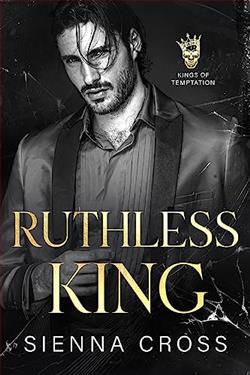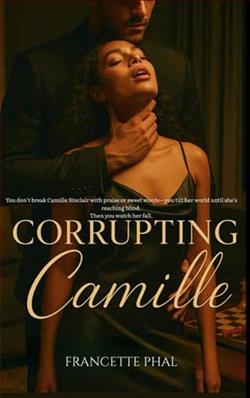Page 30 of Coram House
The sun ishigh, the light bright and flat as we take the trail back toward the road. My morning run in reverse. How much time has passed since I left my apartment this morning—two hours? Four? I have no idea.
“Careful there.”
Parker points to a patch of ice. Brown maple leaves are curled inside, as if they’re still drifting through the air instead of frozen in place. He walks ahead, his boots leaving elephant-sized footprints in the snow.
“What will happen to her now?” I ask. I can’t bring myself to saybody. Neither can I shake the feeling that I’m responsible for her. Like I found a dog on the side of the road and need to make sure it finds its way home.
“They’ll bring her in to identify her and determine cause of death,” he says. “Or the family will report her missing. Turn left here.”
He points down a path that splits off from the main trail. Now it’s covered in heavy bootprints—a herd of elephants—but I recognize the spot. “This is the place where she joined the trail,” I say.
He stops and looks at me, frowning.
“This morning, I mean. The trail was covered in fresh snow. I thought I was the only one here until I got to this spot.” I point at the spur trail. “Another set of footprints joined the trail from down there. They must be hers, right? The woman’s.”
Parker rubs a hand over his chin. The woods are so quiet I hear his glove rasp against the stubble. “Seems likely. Thanks, I’ll pass it along.”
I get the feeling that he’s humoring me, trying to keep me moving.
“Not much farther,” he says.
A few minutes later, the trees drop away and we step onto a path lined by rows of headstones stretching up a steep hill. This morning, I felt deep in the woods, but Coram House was right here all along, crouching just out of sight.
A police cruiser sits in front of a white mausoleum. A marble angel keeps watch on the roof. Her legs dangle over the side like a child on a chair too tall for her. The car beeps as Parker unlocks it.
“You’ll have to sit in the back,” he says.
A prickly ball of fear in my stomach. “Am I under…” I trail off, unsure what I’m even asking.
“It’s policy,” he says quickly. “There’s a shotgun rack in front.”
Immediately, I feel stupid.
He opens the back door for me. It’s warmer inside out of the wind, but this just makes me shiver harder, as if my body can now give up. Parker turns the heat to high and points the vents toward the back. “Should warm up in a second,” he says.
I huddle in on myself and look out the window. The gravestones go right up to a stand of birch at the edge of the woods. The silver bark peels away in strips like a snake sloughing off its skin.
“All right?”
A metal grille separates the back seat from the front. I nod back at him from my cage, but the truth is, everything hurts. My skin feels a size too small for the flesh thawing underneath.
Parker rests his hands on the wheel, but doesn’t drive yet. “About the other day…” He pauses. “I should have told you I was supposed to be your liaison when you came in. That wasn’t fair. I didn’t mean to come off as—” He searches for the right word.
“Hostile?” I suggest through chattering teeth.
His eyes catch mine in the mirror. The corner of his mouth twitches. “Unprofessional,” he says.
“Right,” I say. “Neither did I. It was… a hard day.”
Parker nods and puts the car in reverse. The path hasn’t been plowed yet; the only marks are Parker’s tire tracks. As we crest the hill, CoramHouse appears, one piece at a time. First the gold weathervane, then the long slate roof, the upper floors, the lower, as if the building is rising up from underground. From here, you can’t see any of the new construction. It could be fifty years ago.
“I went inside,” I say. “Yesterday.”
Nothing changes—he’s still quiet, eyes still on the road, but his silence takes on another layer. We reach the main gates to the cemetery, and he puts on his blinker.
“It wasn’t what I expected,” I say. “It was so empty. It was just— a building.”
I don’t know how to describe what I mean or even why I’m telling him this. It’s not that I’d expected some chamber of horrors, preserved in wax. But there had been no sign the building was ever full of children. I’d once been in a school that had been shut down. There had still been drawings pinned to the wall, a pencil jammed between the floorboards, initials carved into the stairwell. The children of Coram House had been erased entirely.















